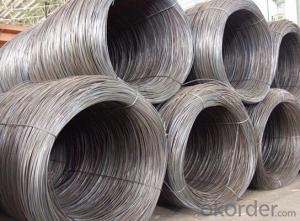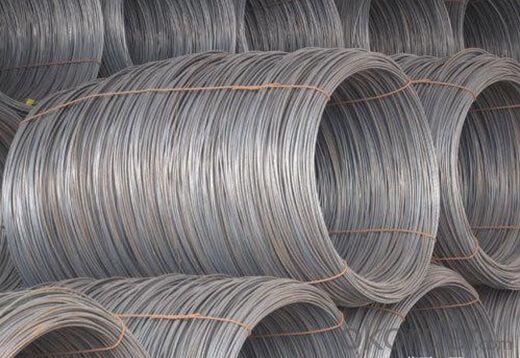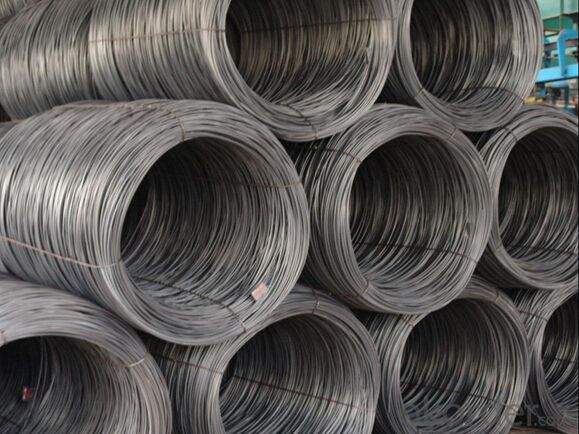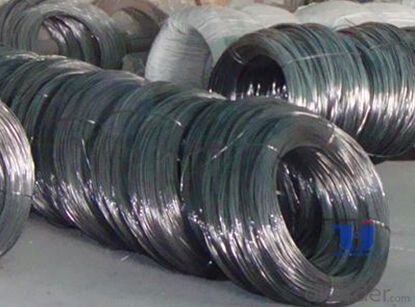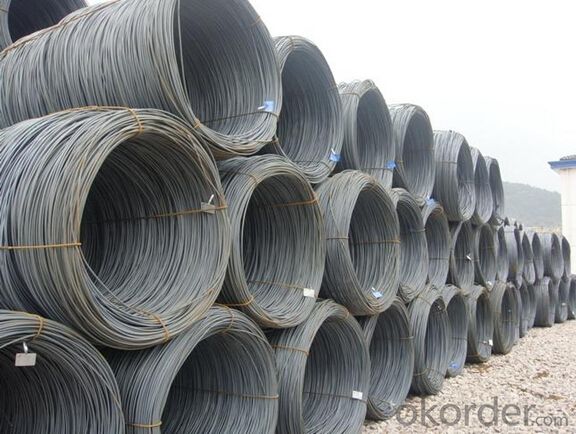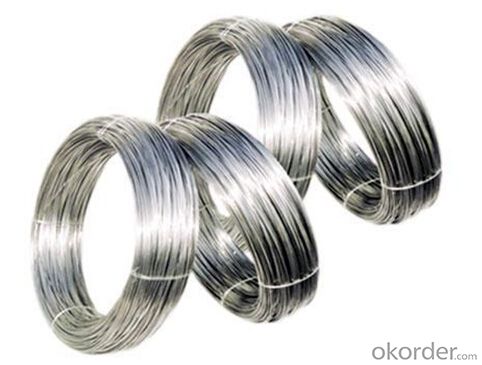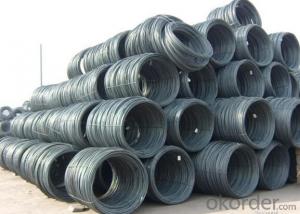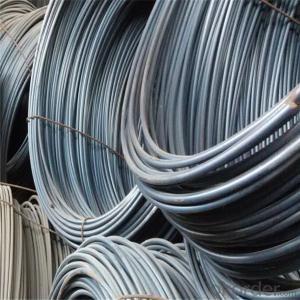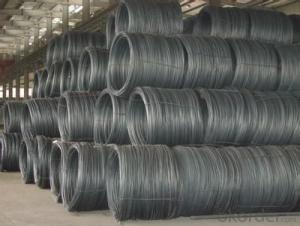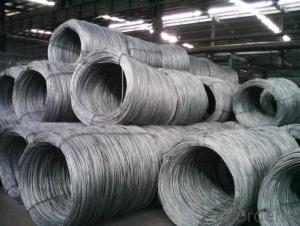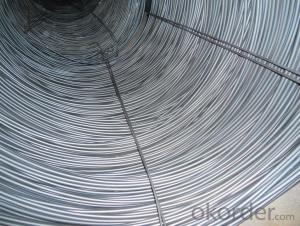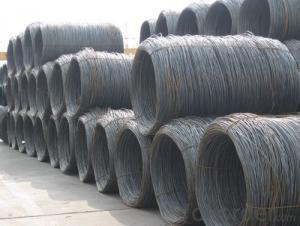Dia.5.5mm-6.5mm-8mm-10mm SAE1008-SAE1006-SAE1010 Wire Rod
- Loading Port:
- Tianjin
- Payment Terms:
- TT or LC
- Min Order Qty:
- 25 m.t.
- Supply Capability:
- 10000 m.t./month
OKorder Service Pledge
OKorder Financial Service
You Might Also Like
Specification
Dia.5.5mm-6.5mm-8mm-10mm SAE1008-SAE1006-SAE1010 Wire Rod
Specification
Packing: | With Bundles or Standard Seaworthy Packing |
Size: | Diameter 5.5mm--10mm |
Standard: | GB/ASTM/JIS/DIN |
Productivity: | 500 Ton/Month |
Unit Price/Payment: | T/T With 30% Advance Payment, The Balance Against |
HS Code: | 7214200000 |
Min. Order: | 1 Ton |
Composition: | Ferrous Steel Scrap |
Technique: | Cold Drawn |
Surface Treatment: | Plain |
Steel Grade: | Q195, Q215, Q235, SAE 1006, 1008,1010,1012,1016,1018, ect |
Application: | Structural Steel Bar |
Type: | Carbon Steel Bar |
Shape: | Round, Long |
Chemical Composition
Grade | Chemical Composition(%) | |||||
C | Mn | Si | S | P | Cr | |
SAE1006B | 0.03~O.07 | ≤0.32 | ≤0.30 | ≤0.045 | ≤0.040 | 0.3-0.35 |
Mechanical properties | ||||||
Yield strength(N/mm2) | Tensile strength(N/mm2) | Elongation(%) | ||||
250-280 | 350-380 | ≥32 | ||||
Grade | Chemical Composition(%) | |||||
C | Mn | Si | S | P | Cr | |
SAE1008B | 0.10max | 0.3~O.50 | 0.15max | 0.050max | 0.040 max | 0.3-0.35 |
Mechanical properties | ||||||
Yield strength(N/mm2) | Tensile strength(N/mm2) | Elongation(%) | ||||
≥195 | 315-430 | ≥30 | ||||
Company Information
CNBM International Corporation is the most import and export platform of CNBM group(China National Building Material Group Corporation) ,which is a state-owned enterprise, ranked in 270th of Fortune Global 500 in 2015.
With its advantages, CNBM International are mainly concentrate on Cement, Glass, Iron and Steel, Ceramics industries and devotes herself for supplying high quality series of refractories as well as technical consultancies and logistics solution.
After-sale service | CNBM provides the services and support you need for every step of our cooperation. We’re the business partners you can trust; you can relax and get on with doing business. |
For any problem, please kindly contact us at any your convenient time, we’ll reply you in our first priority within 24 hours | |
Advantages | Industry experience over 20 years. |
Shipment of goods -More than 70 countries worldwide. | |
The most convenient transport and prompt delivery. | |
Competitive price with best service. | |
High technical production line with top quality products. | |
High reputation based on best quality products. |
Products Show
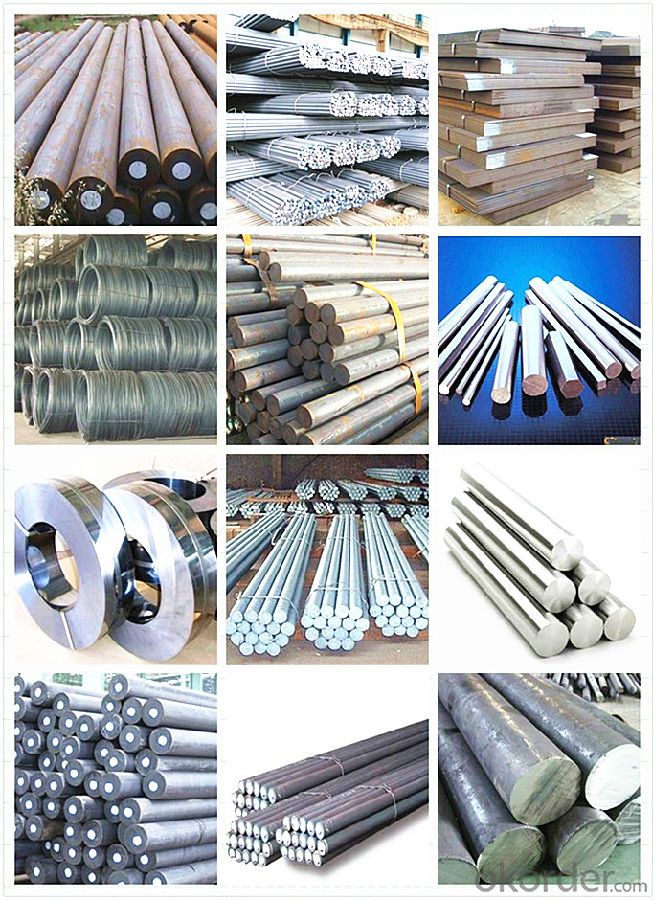
FAQ
Are you a trading company or manufacturer? | Manufacturer |
What’s the MOQ? | 3 metric ton |
What’s your delivery time? | 15-35 days after downpayment received |
Do you Accept OEM service? | Yes |
what’s your delivery terms? | FOB/CFR/CIF |
What's the Payment Terms? | 30% as deposit,70% before shipment by T/T |
Western Union acceptable for small amount. | |
L/C acceptable for large amount. | |
Scrow ,Paybal,Alipay are also ok | |
Why choose us? | Chose happens because of quality, then price, We can give you both. |
Additionally, we can also offer professional products inquiry, products knowledge train (for agents), smooth goods delivery, excellent customer solution proposals. | |
What's your available port of Shipment? | Main Port, China |
What’s your featured services? | Our service formula: good quality+ good price+ good service=customer's trust |
Where are your Market? | Covering more than 160 countries in the world |
- Q: What are the main applications of special steel in the defense aircraft?
- Special steels are used in defense aircraft for various critical applications such as manufacturing aircraft components, structures, and armor. These steels possess exceptional strength, durability, and resistance to corrosion and heat, making them suitable for challenging environments. Special steels find applications in components like landing gears, engine parts, rotor blades, and missile systems, where their high performance and reliability are essential for ensuring the safety and effectiveness of defense aircraft.
- Q: What are the different types of coatings for special steel?
- To enhance the performance and safeguard special steel against various environmental factors, a range of coatings can be applied. The following are some commonly used coatings for special steel: 1. Zinc-based coatings: These coatings, like galvanized steel, offer exceptional corrosion resistance. By acting as sacrificial barriers, the zinc layers protect the underlying steel from rusting. 2. Epoxy coatings: Renowned for their resistance to chemicals, moisture, and abrasion, epoxy coatings find extensive use in industries where steel is exposed to harsh conditions or corrosive substances. 3. Powder coatings: Providing a durable and visually appealing finish to special steel, powder coatings are applied as dry powder and cured under heat. This process forms a tough, protective layer that resists chipping, fading, and corrosion. 4. Ceramic coatings: Ceramic coatings are celebrated for their ability to withstand high temperatures and excellent thermal insulation properties. They are commonly utilized in applications involving extreme heat or rapid temperature changes. 5. Organic coatings: Acrylics and polyurethanes are examples of organic coatings that create a protective barrier against moisture, UV radiation, and chemicals. They are frequently employed in outdoor applications, such as architectural structures or automotive parts. 6. Phosphate coatings: Primarily used as pre-treatment before applying other coatings or paints, phosphate coatings enhance adhesion and corrosion resistance in subsequent layers, resulting in a more durable finish. 7. Polymer coatings: Polymer coatings exhibit exceptional resistance to abrasion, impact, and chemicals. They are often utilized in industrial settings where steel experiences heavy wear and tear. Selecting the appropriate coating for special steel is crucial, considering the specific requirements and environmental conditions it will encounter. Each type of coating possesses its own advantages and limitations, necessitating a comprehensive analysis to determine the most suitable option.
- Q: Can special steel be used for luxury goods?
- Yes, special steel can be used for luxury goods. Special steel, often known for its exceptional quality, durability, and unique aesthetic appeal, can be utilized in the production of high-end luxury goods such as watches, jewelry, and accessories. Its premium attributes and distinct characteristics make it an attractive choice for luxury brands seeking to craft exclusive and sophisticated products that cater to discerning customers.
- Q: Can special steel be used in the manufacturing of cutting-edge technology products?
- Yes, special steel can be used in the manufacturing of cutting-edge technology products. Special steel, such as high-strength alloys or stainless steel, offers various desirable properties like durability, corrosion resistance, and high strength-to-weight ratio. These characteristics make it suitable for the production of components used in advanced technology products like smartphones, laptops, aerospace equipment, and medical devices.
- Q: How is special steel used in the medical supply chain?
- Special steel is used in various ways within the medical supply chain. It is commonly utilized in the production of surgical instruments, implants, and medical devices due to its exceptional properties such as strength, durability, and corrosion resistance. Special steel is crucial in ensuring the quality and safety of these medical supplies, as it can withstand the demanding conditions of surgical procedures and sterilization processes. Additionally, special steel is used in the manufacturing of storage and transportation equipment for medical supplies, ensuring their proper handling and preservation. Overall, special steel plays a vital role in maintaining the integrity and reliability of medical supplies throughout the entire supply chain.
- Q: What are the different tempering techniques used for special steel?
- Some of the different tempering techniques used for special steel include air tempering, oil tempering, water tempering, and salt bath tempering.
- Q: How does bearing steel contribute to the manufacturing of bearings?
- Bearing steel is a specific type of steel that offers high hardness, durability, and corrosion resistance, making it ideal for the manufacturing of bearings. The properties of bearing steel allow for the creation of strong and long-lasting bearing components that can withstand heavy loads, high temperatures, and intense rotational speeds. The steel's hardness helps to prevent wear and deformation, ensuring smooth and efficient bearing operation. Overall, bearing steel plays a crucial role in ensuring the reliability and performance of bearings in various industrial applications.
- Q: How is special steel used in the production of springs?
- Special steel is used in the production of springs due to its unique properties that make it ideal for withstanding high stress and maintaining elasticity. The high strength and excellent fatigue resistance of special steel allow springs to endure repetitive loading without deformation or failure. Additionally, the specific composition of special steel can be tailored to meet desired characteristics such as corrosion resistance, heat resistance, or electrical conductivity, making it highly versatile for various spring applications across industries.
- Q: What are the different methods of surface electroplating for special steel?
- There are several methods of surface electroplating for special steel, including electroless plating, electroplating by immersion, barrel plating, and rack plating. Electroless plating is a chemical process that uses a reducing agent to deposit a layer of metal onto the steel surface. Electroplating by immersion involves immersing the steel in an electrolyte bath and applying an electric current to deposit a metal coating. Barrel plating is a method where the steel parts are placed in a rotating barrel along with the plating solution, creating a tumbling action that ensures an even coating. Rack plating involves suspending the steel parts on a rack and immersing them in the plating bath. Each method has its own advantages and is chosen based on the specific requirements and characteristics of the special steel being plated.
- Q: Can special steel be used in the packaging industry?
- Yes, special steel can be used in the packaging industry. Special steel, such as stainless steel or high-strength steel, offers excellent durability, corrosion resistance, and strength properties. These characteristics make it suitable for manufacturing various packaging materials and equipment, including containers, drums, cans, and machinery. Additionally, special steel's versatility allows for customization and adaptation to meet specific packaging requirements, making it a preferred choice in the industry.
Send your message to us
Dia.5.5mm-6.5mm-8mm-10mm SAE1008-SAE1006-SAE1010 Wire Rod
- Loading Port:
- Tianjin
- Payment Terms:
- TT or LC
- Min Order Qty:
- 25 m.t.
- Supply Capability:
- 10000 m.t./month
OKorder Service Pledge
OKorder Financial Service
Similar products
Hot products
Hot Searches
Related keywords

